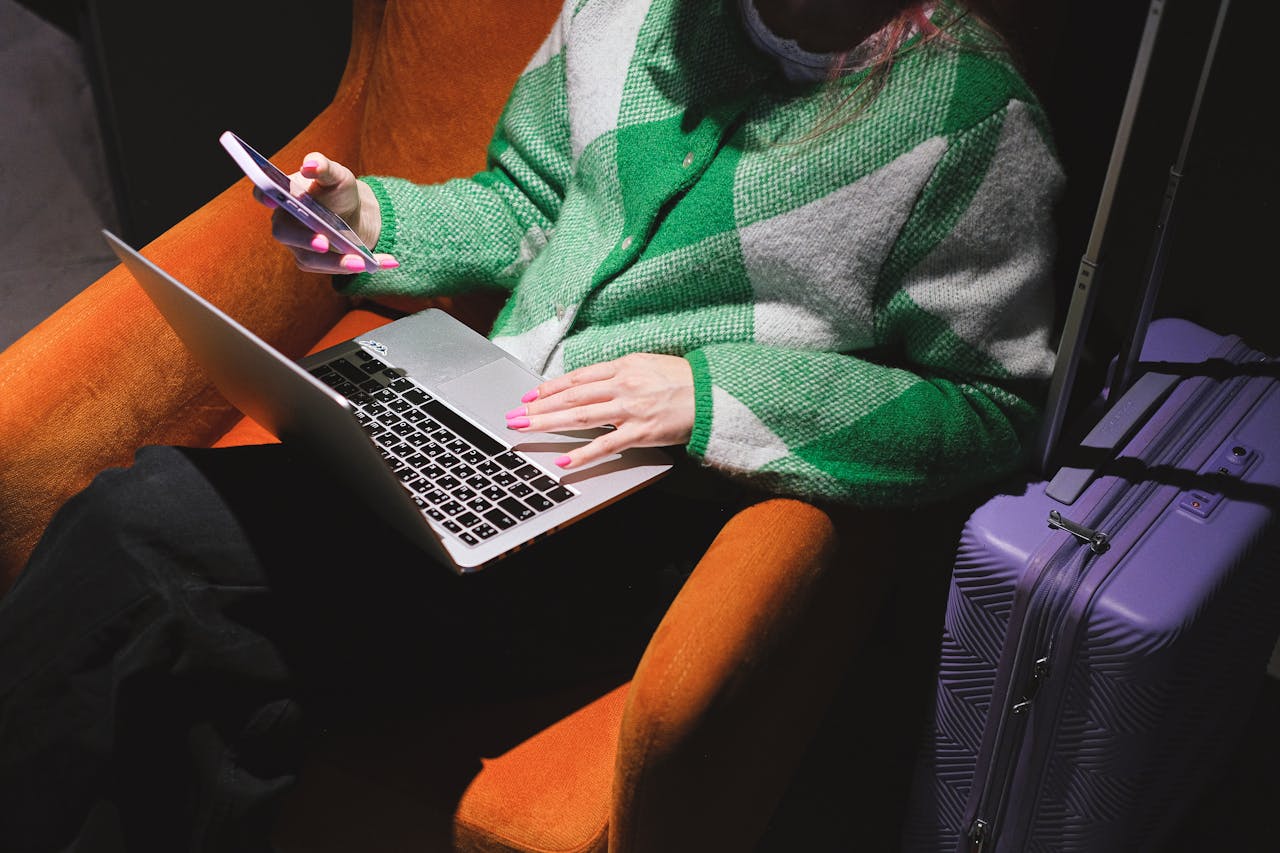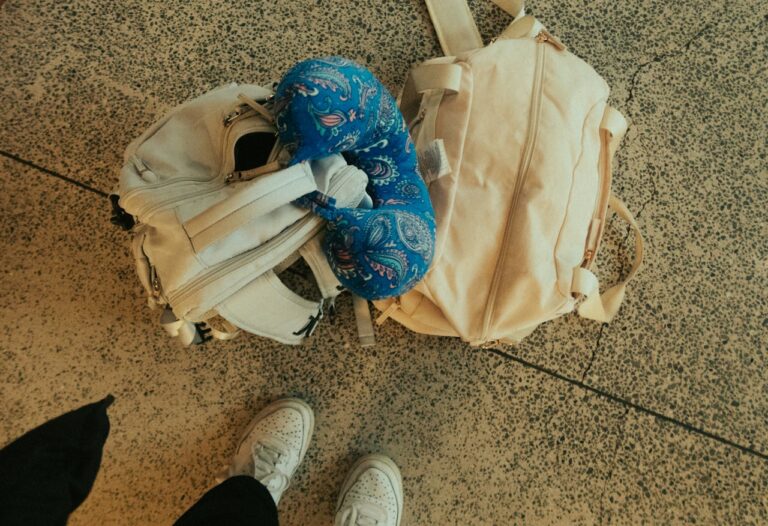Write Us: hello@ali5.org
The Digital Nomad Starter Guide: Work, Travel, Repeat
Start your digital nomad journey with this complete guide. Learn how to find remote work, manage travel logistics, and balance productivity with adventure.

It used to sound like a dream to be able to work from a café on the beach or a house in the mountains. These days, it’s a real job option. Digital nomads are people who work from anywhere with a laptop. They combine work and travel into one lifestyle.
If you want to leave your cubicle behind and work from home with just a backpack and Wi-Fi, read this first. It will help you make it happen without making the usual mistakes.
1. Figure out what it means to be a digital nomad.
The idea of drinking coffee in Paris one month and climbing in Bali the next is easy to romanticize. But the truth is that being a digital nomad means juggling two lives at the same time. You have to deal with visas, travel plans, and lodging while also having a real job with meetings, deadlines, and deliverables.
It’s exciting, but you need to be disciplined, flexible, and good at planning. You might get tired of it quickly if you’re only after the Instagram form of it.
2. Pick the Right Work
Not all jobs are good for people who live like nomads. You need to be able to do something from home and not have to be in the same time zone all the time. Some common choices are:
- Working as a freelancer (writing, designing, coding, marketing, and making videos)
- You can teach or coach online.
- Offering virtual help
- Shopping online or dropshipping
- Making content (like blogs, videos, and managing social media)
- Working from home with free hours
It’s easier to balance job and travel when you have more say over your work hours.
3. Make sure you have money before you leave.
The worst thing that new nomads do? They quit their job and went on the road without a steady source of income. It takes money to travel, even if you do it on the cheap. Before you put your things away:
- Get a steady stream of clients or find a job that you can do from home.
- As a safety net, save enough money to cover your costs for three to six months.
- Make goals for how much money you need to cover your journey and living costs.
This is like getting your parachute ready before you jump out of the plane.
4. Choose places that are easy on the wallet
Some places will drain your bank account in weeks, while others will let you live well on a lot less. Look at cost-of-living lists and find places that are known for being cheap and connected for digital nomads, like
- Chiang Mai, Thailand: Cheap, great Wi-Fi, and a thriving group of nomads.
- Tbilisi, Georgia: easy to get a visa, cheap rent, and lots of culture.
- Medellín, Colombia, has great weather and a cheap way of life.
- In Lisbon, Portugal, A little more expensive, but it gives you a great work-life mix.
Tip: If you live somewhere with good internet, low rent, and cheap food, your money will go further.
5. Figure out how to pack light.
To be a nomad, you have to move around a lot, so a big bag is not what you want. You should only bring what you need with you on your trip.
Important things include:
- A laptop and a compact hard drive that are light
- Headphones that block out noise
- Power strip that’s good for travel
- Easy-to-wear clothes that go with everything
- A bag or carry-on that you can trust
Don’t forget that you can always get what you need later. Bringing big bags with you only slows you down and costs you extra.
6. Look for a good place to work
Not all places are made to be worked from while traveling. Bad Wi-Fi can ruin your day, especially if you need to talk to clients or meet a schedule. That’s the reason why study is so important.
Some options are:
- Coworking spaces have fast internet and a group of people who work together.
- Cafés: great if they let you charge your laptop and have plugs for them.
- Your place to stay: hostels or Airbnb flats with good workspaces.
Always read reports of the Wi-Fi speed before you book a stay. You don’t want to waste the morning looking for a good signal.
7. Learn how to use your time well
Setting your hours can be both a gift and a trap. People who don’t have a plan might work too much (and not see anything) or too little (and lose money).
Most travelers like these things:
- Set aside set times to work.
- To run talks, use time zone converters.
- To get the most done, group jobs together.
- Allow time in your day to discover new things.
Your goal is to find a good balance between making enough money and liking where you are.
8. Keep track of your money
Keeping track of your money is harder when you’re moving from one country to another. To keep up, do this:
- Choose a bank that charges little or no fees for international transactions.
- Apps like Trail Wallet and Revolut can help you keep track of your spending.
- Always keep some cash on hand in the local currency.
- Get a second card in case you lose or can’t use the first one.
Being broke in a different country is not part of the story of a “fun adventure.”
9. Get visas and take care of the law
The rules for getting a visa can make or break your trip. Different countries have different rules about how long you can stay on a tourist visa. Check out:
- How long does a tourist visa last
- Digital nomad visa options (in places like Portugal, Estonia, Bali, and more)
- You have to pay taxes in your home country.
If you break visa rules, you could get fined or even banned, so always plan.
10. Stay in touch (both online and off).
You need reliable internet, but you also need to be able to talk to real people. If you don’t go out and meet people, being a nomad can make you feel alone. Meetups, Facebook groups for the area, and co-working spots are all great places to meet other travelers.
The community of digital nomads is surprisingly helpful. You can find advice, work leads, and maybe even your next travel partner.
11. Take care of your health
When you travel full-time, it can throw off your schedule. Your health is your most valuable asset, even if you want to skip workouts or eat whatever is cheap.
- Get insurance for your trip.
- Hold on to a simple first aid kit.
- Do some kind of exercise every day, like yoga, running, or bodyweight exercises.
- Drink plenty of water, especially when it’s hot outside.
It doesn’t matter how free you are if you aren’t healthy.
12. Expect the unexpected.
Things can go wrong with planes if trips are late, Wi-Fi goes out, or the weather changes quickly. For digital nomads, being able to change their minds quickly is important. They need to see these times as part of the journey.
The worst days can sometimes lead to the best stories.
Last Thoughts
Being a digital nomad is more than just a way to make money while you travel. It’s a way of life that combines work, travel, and freedom. Yes, it can be hard, but if you plan and stay flexible, it can be one of the best ways to live.
Pick a small area to begin with and try it out. The pattern “work, travel, repeat” could end up being your best.







